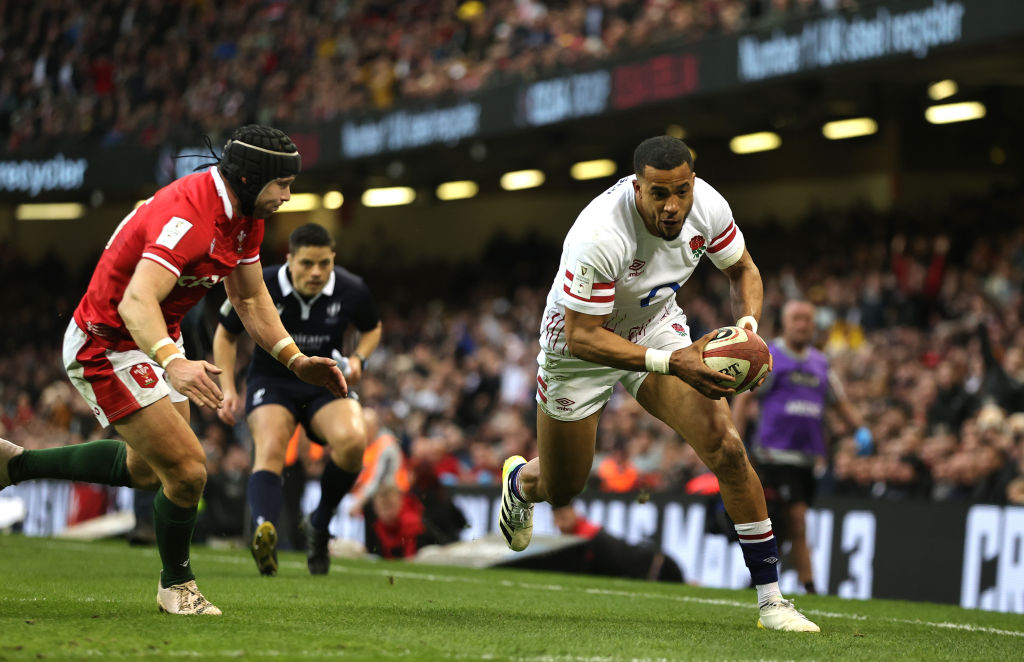Six Nations: What we learned from England’s 20-10 win over Wales in Cardiff

It has always been one of those Six Nations matches fans look for when the fixtures are released, but Saturday’s clash between Wales and England did little to extinguish what has been a fiery couple of months for the home side.
Given threats were made by players to strike in the days leading up to the 20-10 loss to England in Cardiff, the cagey affair heaped more sorrow on Wales while handing Steve Borthwick a much needed first away win.
Here are three things we learned from the round three match.
England evolution
England have clearly evolved in their three matches under Borthwick, whereas Wales have plateaued or even regressed in their three since Warren Gatland returned.
The three tries for the visitors, from Anthony Watson, Ollie Lawrence and Kyle Sinckler, mean that England have crossed the whitewash 11 times in three matches.
Wales, on the other hand, have scored on just three occasions in their opening three matches against their home nations opponents.
Coached in attack by Harlequins’ Nick Evans, England have developed from the side that won just five matches in 12 Tests under Eddie Jones in 2022. They are making more line breaks than last year and are developing a more robust system than before.
It may look boring but Borthwick’s men are starting to put together an impressively resilient game plan which will get the ultimate test in their next two games against the world’s top two sides, France and Ireland.
Definition of insanity?
It is difficult to dissect where Wales are at the moment without acknowledging that they’re in one of the deepest ruts they’ve been in for decades.
They’re a nation of incredible talent and create one of the sport’s greatest atmospheres on their doorstep but they’re seemingly unable to make use of those assets.
On Saturday, against a backdrop of chaos off the field in the days prior, Wales offered little except a brilliant Louis Rees-Zammit interception read.
Gatland was called upon by the national team as a settler, a calming presence for a monumental year. It has been anything but.
Some of his comments about the potential strikes were taken badly, and at the end of the day his side have been outmuscled and outplayed in all of their matches this year – albeit England were the least dominant.
There’s never a quick fix in international sport, and often it takes time to develop players who have been stagnant under a previous regime. But Gatland doesn’t have time, and players and fans alike are beginning to see that.
In round four they head to Rome to play their closest rivals in the Six Nations table, Italy.
The Azzurri ran France close and this weekend held their own against a brilliant Irish team. Wales simply must win that game, but it’s a long way from a certain result.
The England undroppables
Cardiff was a raucous bowl of noise, atmosphere and mixed emotions throughout the 80 minutes on Saturday and a number of England players added to their value.
Back rowers Lewis Ludlam and Jack Willis continued their rich vein of form throughout the afternoon, with the duo working well to effect turnovers, make crunching tackles and carry beyond the gainline.
Centre Ollie Lawrence solidified his case to be England’s No12 at this year’s World Cup. The former Worcester back scored a crucial try to seal the victory but was smart throughout the 80 and probed the Welsh defence well.
Alex Mitchell, the replacement No9, was crucial in the tempo change in the final quarter and could knock Jack Van Poortvliet onto the bench against Antoine Dupont and the French.
Wales are bottom of the Six Nations and they’re struggling. The last thing they need is a trip to Rome, which is exactly what they’ve got.
England are up and running under Borthwick but two huge obstacles remain in this year’s Six Nations which should give a true reflection of where the side are.